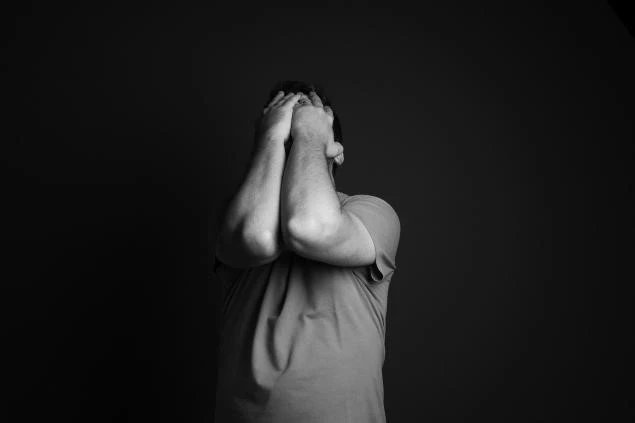ISLAMABAD, June 16 (ABC): Anxiety disorders are among the most common mental health conditions worldwide. While they tend to affect women more than men, men are still widely affected. Due to differing social and biological factors, men’s experiences of anxiety, from coping styles to treatment-seeking behaviors, differ from those of women.
Anxiety disorders are characterizedTrusted Source by excessive fear and worry, and behavioral disturbances. They include:
- generalized anxiety disorder
- panic disorder
- social anxiety disorder
- separation anxiety disorder
- stress
- obsessive-compulsive disorder (OCD)
- post-traumatic stress disorder (PTSD)
- major depressive disorder
- persistent depressive disorder.
In 2019, 301 million people around the world were living with an anxiety disorder, including 58 million children and adolescents. Estimates suggestTrusted Source that females are more affected than men; 23.4% of females have anxiety in a given year in the United States, and the same is true for 14.3% of males.
While common in men, anxiety disorders have largely been overlooked in men’s mental health literature, meaning there is little high-quality research on the subject.
Medical News Today spoke with four experts in mental health on topics ranging from how anxiety expresses differently in men and women, to how men seek treatment, and what could improve the way they think about the condition and seek support.
Symptoms
A 2021 reviewTrusted Source of 25 studies investigating anxiety among men found that symptoms of anxiety differ between men and women.
The researchers found that men report increased anxiety severity and are more likely to report physical symptoms such as headache, loss of appetite, and body tremors, alongside sensations of losing control when compared to women of the same age.
They also found that anxiety among men tends to center on feelings of a lack of control and the perception of “being a failure” if unable to regain control of anxious states. Men also often depict their symptoms as “enduring, ever-present and sometimes life-long.”
While mild anxiety has been linked to better cognitive performance, severe anxiety has been linked to reduced cognitive function. Other research suggests that anxiety disorders are linked to a lower quality of life and reduced social functioning.
Coping styles
ResearchTrusted Source has sometimes found differences in the emotion regulation strategies of men and women. Thus, it suggests that some men may tend to revert to problem-based coping more often, while some women might opt for more avoidant coping strategies, such as seeking emotional support.
Although problem-based coping strategies may be effective in situations that are controllable or adjustable, they may fall apartTrusted Source if these conditions are not met. At this point, men are more likely than women to “self-medicate” as a form of avoidance behavior.
“Often men may use alcohol, tobacco, and other non-prescription and prescription drugs to reduce or control the experience and symptoms of anxiety,” Dr. Derek M. Griffith, founder and director of the Center for Men’s Health Equity, and professor of health systems administration and oncology at Georgetown University told MNT.
“Men may imagine the worst possible scenario and reason that it is wiser for them to avoid a situation because that scenario may be possible,” he added.
When asked why men may utilize problem-based coping more than women, Dr. Thomas Fergus, associate professor in the Department of Psychology and Neuroscience at Baylor University, told MNT that the way boys and girls are taught to manage emotional states may play a role in coping styles.
He noted that women are generally socializedTrusted Source to focus on emotional states more frequently than men and that men are more socialized to focus on problem-solving and gaining control over their negative emotions.

